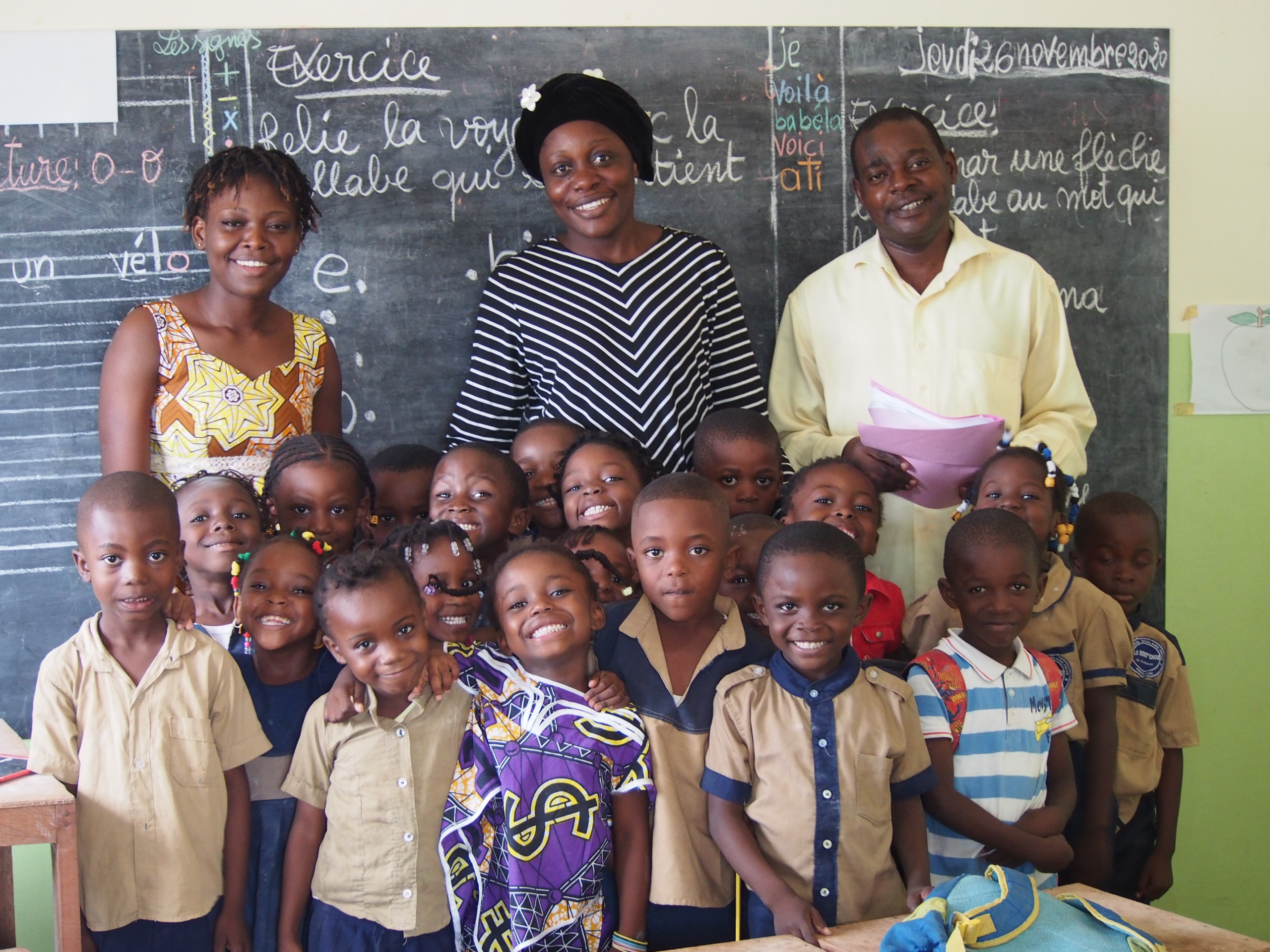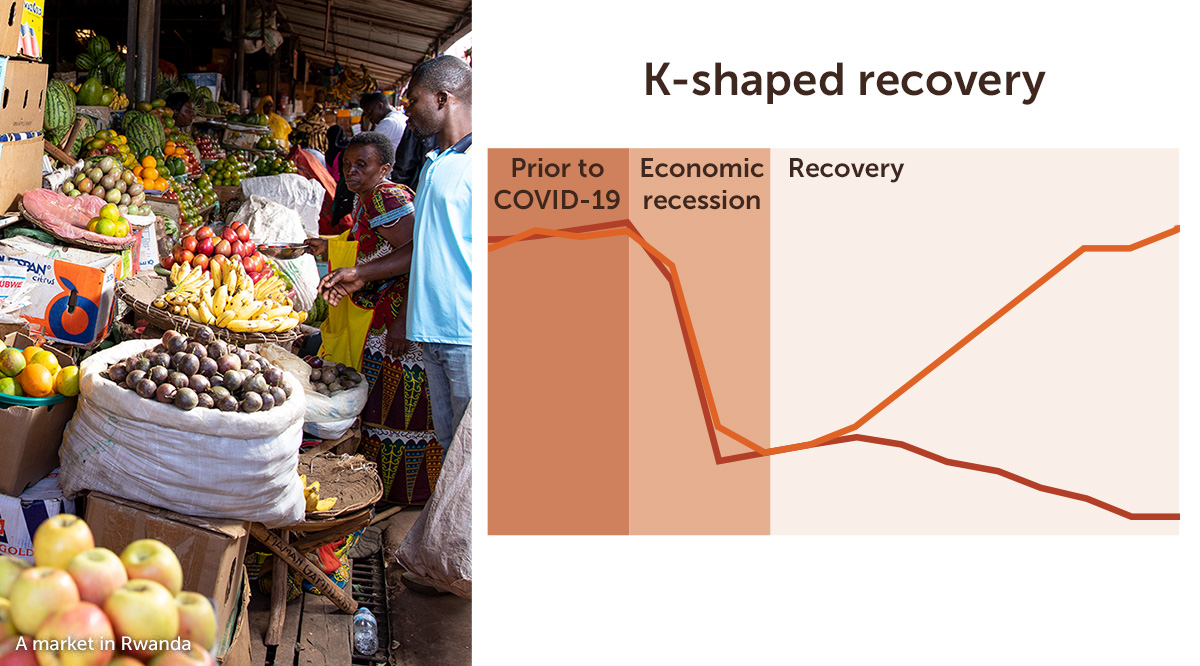The United States is currently experiencing what economists are calling a K-shaped recovery. This occurs when, following a widespread and significant economic dip, certain portions of the economy begin to move toward economic recovery, while others stagnate or fall even further. A K-shaped graph helps explain why recovery following the pandemic seems to be occurring unevenly—while some industries (and people) are returning to normal or even improving, others are experiencing the very opposite.
This phenomenon seems to be occurring globally, as well.
“We can’t assume that other countries are experiencing a sigh of relief like the U.S. might be,” says Gillian Foster Wilkinson, director of MFI support services at HOPE International. “We are, in general, seeing a K-shaped recovery in the countries in which HOPE serves.”
Further, Gillian points out, this split recovery extends beyond the economic to impact multiple facets of people’s lives, including social, personal, and emotional dynamics.
“Rwanda is one example of a context experiencing the downward stroke of a K-shape, as the country has rolling lockdowns and restrictions,” Gillian explains. “The closure of markets and limited transport means that there have been mini ‘waves’ of recessions and income instability all through 2020 and 2021.”
The pandemic has also impacted key industries in certain countries, like tourism in the Dominican Republic, where HOPE’s partner, Esperanza International, operates. And for entrepreneurs across the HOPE network who travel internationally to procure goods to sell in their local communities, travel restrictions have dramatically affected their businesses. Limited vaccines also continue to impact recovery.
With the World Bank reporting that, for the first time in decades, more people are being pushed into poverty, the K-shaped trend isn’t expected to change direction any time soon.
The personal impact of the K-shaped curve
 At the beginning of 2020, Carrole Moussengue (pictured above, center) was running a small daycare in the Republic of Congo for infants and young children. But when a community lockdown required her to close her business, she faced an unexpected crisis. Without families paying for their children’s care, Carrole fell behind on rent and was evicted from the building that housed the daycare. “I found myself struggling to survive,” she recalls.
At the beginning of 2020, Carrole Moussengue (pictured above, center) was running a small daycare in the Republic of Congo for infants and young children. But when a community lockdown required her to close her business, she faced an unexpected crisis. Without families paying for their children’s care, Carrole fell behind on rent and was evicted from the building that housed the daycare. “I found myself struggling to survive,” she recalls.
That’s when a friend told her about HOPE Congo. “I was bankrupt when HOPE reached out to me,” she says. With a loan of $464 (U.S.), Carrole was able to pivot, using her funds to set up a new space for an expanded student body. When restrictions lifted and Carrole reopened her school, Le Boutchou (“the little one”), she was set up to welcome children through age 11. “Today, I have a school with an enrollment of 84 students, compared to 19 last year,” she shares.
Carrole describes how the loan she received did more than just give her business a needed boost:
This loan helped me to integrate the elementary school cycle this year—that restored my confidence and gave me peace that no one else could give me.”
As her business got off the ground, she says she could again provide food and medical care for her young daughter, as well as her nephew who lives with them. Further, Carrole says her faith has been built up by the experience: “I am a believer, but the closing of churches weakened me. When I joined the loan group, I retrieved the rhythm of prayer.” She says she’s started leading her students in prayer before meals, and many have shared the practice with their families at home.
Where’s HOPE?
At HOPE International, we’re committed to supporting entrepreneurs around the world as they reopen their businesses—or start new ones. Since 2020, we’ve been intentionally listening to the men and women we serve and, based on their feedback, we’ve come alongside them with loan relief and flexible terms on loans, and prayer. And we’re beginning to see people like Carrole take steps to rebuild their businesses and lives, and we’re committed to walking with them through the K-curve, toward recovery and flourishing.
Your investment will help HOPE share the light of Christ and financial services with families living in underserved communities around the world.
















